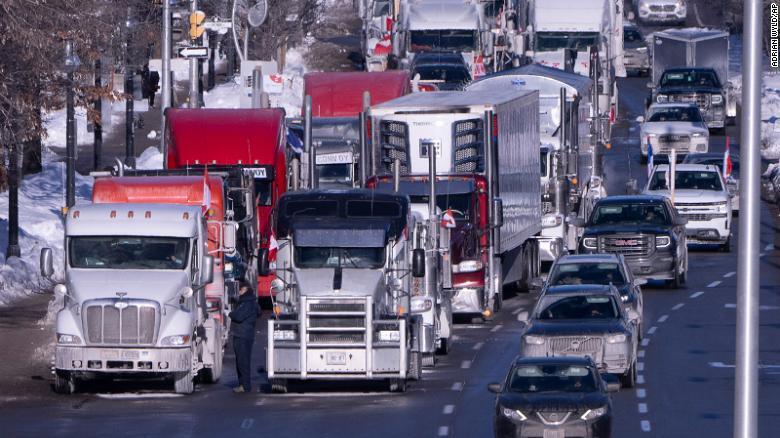Major automakers, including General Motors and Toyota, will reduce U.S. production volumes due to a shortage of spare parts from Canada.
General Motors, Toyota Stelantis – the parent company of Jeep and Chrysler, and other manufacturers, announce a reduction in production volumes in the United States due to a shortage of spare parts. But this time the shortage is not due to natural disasters or the lack of chips but rather because of a strike by Canadian truck drivers who are protesting the restrictions imposed on them following the Corona plague.
Under the restrictions that went into effect on Jan. 15, unvaccinated Canadian truck drivers are required to undergo corona checks before each entry into the U.S. In response, Canadian truck drivers began a series of protests, strikes and roadblocks that led to the closure of the three major U.S. border crossings. And Canada: in Michigan, Dakota and Montana.
Of those three crossings, the crossing in Michigan is the most important to the U.S. auto industry. In practice, although the United States is responsible for most of the automobile manufacturers’ production of automobiles, Canada has been operating automobile factories and spare parts since the beginning of the 20th century. In the neighboring United States.
Following the situation, Toyota has announced that it will halt production in Ontario Canada and Kentucky USA this coming Sunday. Ford will reduce production in Venture USA and Oakville Canada. Stalantis will reduce production at a number of plants, General Motors will be required to stop production in Michigan, and Honda will also be required to stop production on both sides of the border.
Some of the car manufacturers that were affected, such as Toyota, have announced that they will move parts from Canada to the US until the end of the crisis. A method that is more expensive, but does not cause the shutdown of entire manufacturing plants.
